
Brian Wilson Aldiss was an English writer and anthology editor, best known for science fiction novels and short stories. His byline reads either Brian W. Aldiss or simply Brian Aldiss, except for occasional pseudonyms during the mid-1960s.

James Benjamin Blish was an American science fiction and fantasy writer. He is best known for his Cities in Flight novels, and his series of Star Trek novelizations written with his wife, J. A. Lawrence. He is credited with creating the term "gas giant" to refer to large planetary bodies.

Roger Joseph Zelazny was an American poet and writer of fantasy and science fiction short stories and novels, best known for The Chronicles of Amber. He won the Nebula Award three times and the Hugo Award six times, including two Hugos for novels: the serialized novel ...And Call Me Conrad (1965), subsequently published under the title This Immortal (1966) and then the novel Lord of Light (1967).
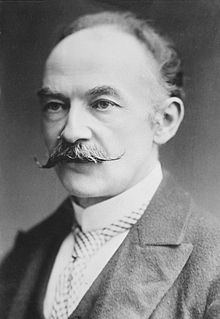
Thomas Hardy was an English novelist and poet. A Victorian realist in the tradition of George Eliot, he was influenced both in his novels and in his poetry by Romanticism, including the poetry of William Wordsworth. He was highly critical of much in Victorian society, especially on the declining status of rural people in Britain, such as those from his native South West England.

Norman Richard Spinrad is an American science fiction author, essayist, and critic. His fiction has won the Prix Apollo and been nominated for numerous awards, including the Hugo Award and multiple Nebula Awards.

John Cowper Powys was a British philosopher, lecturer, novelist, literary critic, and poet, born in Shirley, Derbyshire, where his father was Vicar of St Michael and All Angels Parish Church in 1871–1879. Powys appeared with a volume of verse in 1896 and a first novel in 1915, but gained success only with his novel Wolf Solent in 1929. He has been seen as a successor to Thomas Hardy, and Wolf Solent, A Glastonbury Romance (1932), Weymouth Sands (1934), and Maiden Castle (1936) have been called his Wessex novels. As with Hardy landscape is important. So is elemental philosophy in his characters' lives. In 1934 he published an autobiography. Powys had success as an itinerant lecturer, in England, and in 1905–1930 in the US, where he wrote many of his novels and had several first published. He moved to Dorset, England, in 1934 with his American partner, Phyllis Playter. In 1935 they moved to Corwen, Merionethshire in Wales, where he set two novels, then in 1955 to Blaenau Ffestiniog, where he died in 1963.
Llewelyn Powys was a British essayist, novelist and younger brother of John Cowper Powys and T. F. Powys.
Walter John de la Mare was an English poet, short story writer, and novelist. He is probably best remembered for his works for children, for his poem "The Listeners", and for a highly acclaimed selection of subtle psychological horror stories, amongst them "Seaton's Aunt" and "All Hallows".
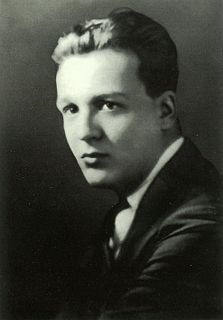
Stanley Grauman Weinbaum was an American science fiction writer. His first story, "A Martian Odyssey", was published to great acclaim in July 1934; the alien Tweel was arguably the first character to satisfy John W. Campbell's challenge: "Write me a creature who thinks as well as a man, or better than a man, but not like a man." Weinbaum wrote more short stories and a few novels, but died from lung cancer less than a year and a half later.

Christopher Priest is a British novelist and science fiction writer. His works include Fugue for a Darkening Island, The Inverted World, The Affirmation, The Glamour, The Prestige, and The Separation.
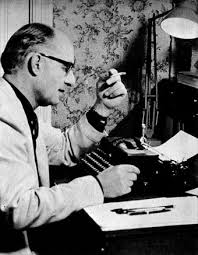
Henry Treece was a British poet and writer who also worked as a teacher and editor. He wrote a range of works but is mostly remembered as a writer of children's historical novels.
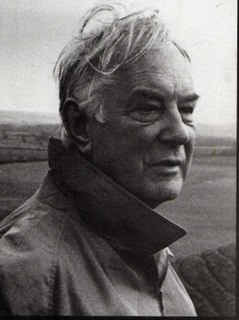
Geoffrey Edward Harvey Grigson was a British poet, writer, editor, critic, exhibition curator, anthologist and naturalist. In the 1930s he was editor of the influential magazine New Verse, and went on to produce 13 collections of his own poetry, as well as compiling numerous anthologies, among many published works on subjects including art, travel and the countryside. Grigson exhibited in the London International Surrealist Exhibition at New Burlington Galleries in 1936, and in 1946 co-founded the Institute of Contemporary Arts. Grigson's autobiography The Crest on the Silver was published in 1950. At various times he was involved in teaching, journalism and broadcasting. Fiercely combative, he made many literary enemies.

Caitlín Rebekah Kiernan is an Irish-born American published paleontologist and author of science fiction and dark fantasy works, including ten novels, series of comic books, and more than two hundred and fifty published short stories, novellas, and vignettes. Kiernan is a two-time recipient of both the World Fantasy and Bram Stoker awards. Kiernan has been referred to repeatedly as a polymath, because of their notable achievements in both literature and science.
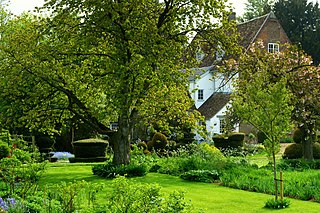
Green Knowe is a series of six children's novels written by Lucy M. Boston, illustrated by her son Peter Boston, and published from 1954 to 1976. It features a very old house, Green Knowe, based on Boston's home at the time, The Manor in Hemingford Grey, Huntingdonshire, England. In the novels she brings to life the people she imagines might have lived there.

Evangeline Walton was the pen name of Evangeline Wilna Ensley, an American author of fantasy fiction. She remains popular in North America and Europe because of her “ability to humanize historical and mythological subjects with eloquence, humor and compassion”.
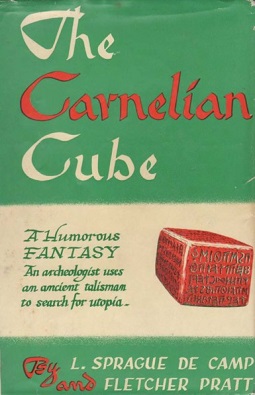
The Carnelian Cube is a science-fantasy novel by American writers L. Sprague de Camp and Fletcher Pratt. It was first published in hardcover by Gnome Press in 1948, and in paperback by Lancer Books in 1967. An E-book edition was published by Gollancz's SF Gateway imprint on September 29, 2011 as part of a general release of de Camp's works in electronic form. It has also been translated into Italian and German.
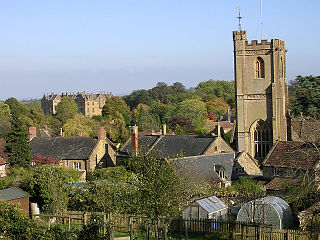
Catharine Edith Philippa Powys was a British novelist and poet, and a member of one of the most distinguished families in modern literature.
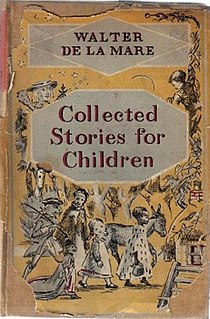
Collected Stories for Children is a collection of 17 fantasy stories or original fairy tales by Walter de la Mare, first published by Faber in 1947 with illustrations by Irene Hawkins. De la Mare won the annual Carnegie Medal recognising the year's best children's book by a British subject. It was the first collection to win the award and the first time that previously published material had been considered.
Dorset is a county in South West England on the English Channel coast. The ceremonial county comprises the area covered by the non-metropolitan county, which is governed by Dorset County Council, together with the unitary authorities of Poole and Bournemouth. Dorset is an average sized county with an area of 2,653 square kilometres (1,024 sq mi); it borders Devon to the west, Somerset to the north-west, Wiltshire to the north-east, and Hampshire to the east. Around half of Dorset's population lives in the South East Dorset conurbation. The rest of the county is largely rural with a low population density.

Wolf Solent is a novel by John Cowper Powys (1872–1963) that was written while he was based in Patchin Place, New York City, and travelling around the US as a lecturer. It was published by Simon and Schuster in May 1929 in New York. The British edition, published by Jonathan Cape, appeared in July 1929. This, Powys's fourth novel, was his first literary success. It is a bildungsroman in which the eponymous protagonist, a thirty-five-year-old history teacher, returns to his birthplace, where he discovers the inadequacy of his dualistic philosophy. Wolf resembles John Cowper Powys in that an elemental philosophy is at the centre of his life and, because, like Powys, he hates science and modern inventions like cars and planes, and is attracted to slender, androgynous women. Wolf Solent is the first of Powys's four Wessex novels. Powys wrote both about the same region as Thomas Hardy and was a twentieth-century successor to the great nineteenth-century novelist.
















